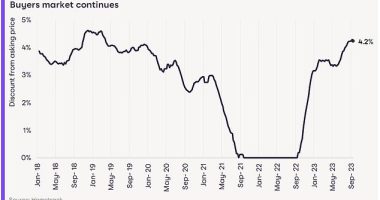HOUSEHOLDS have been hit with a double whammy of energy price rises and interest rate rises today.
The government has also unveiled its long-awaited package of support to help with energy bills including council tax and energy bills support – here is how the latest hikes in the cost of living could affect you.
Energy regulator Ofgem confirmed this morning that the energy price cap, setup to limit tariff costs for out-of-contract customers, will rise by £693 to £1,971 from April.
It comes after the cap increased in October 2021 amid record wholesale gas prices, which has led to around 30 energy suppliers collapsing and reduced competition in the market.
The Bank of England has also made a new attempt to tackle rising inflation by increasing interest rates for the second time in two months.
The base rate, which influences the price of credit such as loans and mortgages, has been hiked from 0.25% to 0.5%.
This all adds to the cost of household bills, with inflation already at a 30-year high.
The government has been trying to tackle the energy market and cost of living crisis and today said it would support households with a £150 council tax rebate, a £200 energy bill discount and by extending eligibility for the Warm Home Discount Scheme.
This support will be worth £350 on average for 28million households.
Here is how these changes could affect you.
Energy bills
? Read our Energy price cap live blog for the latest updates
Energy bills have been rising since the end of last year.
Smaller suppliers have struggled with rising wholesale gas costs and around 30 have collapsed.
Customers have been moved to new suppliers where charges are often higher.
Additionally, Ofgem increased the energy price cap from £1,138 to £1,277 in October 2021.
That increased the prices for the 22million Brits on default standard tariffs.
These customers, and those coming off fixed-price tariffs, are now facing another increase from April as the cap rises to £1,971.
Prepayment customers will also see an increase of £708 from £1,309 to £2,017.
The traditional energy market advice is to shop around for a cheaper deal.
It is still possible to do this through a comparison website but experts have previously advised that many fixed price deals are still more expensive than the price cap so you may be better off staying on a default deal for now.
The government unveiled a range of measure today to soften the blow of energy bill increases.
All domestic energy customers will get a £200 discount on their energy bill from October.
Customers will then pay back £40 a month from April 2023, when it’s hoped that prices will have dropped.
Chancellor Rishi Sunak told MPs: “It is not sustainable to keep holding the price of energy artificially low. For me to stand here and pretend we don’t have to adjust to paying higher prices would be wrong and dishonest.
“But what we can do is take the sting out of a significant price shock for millions of families by making sure the increase in prices is smaller initially and spread over a longer period.”
Traditionally, people on the guarantee credit element of Pension Credit could get a £140 payment towards their bills during the winter called the Warm Home Discount scheme.
Around 2.7million households currently receive it but Mr Sunak also announced today that eligibility would be extended so more households would be covered.
Justina Miltienyte, energy policy expert at comparison website Uswitch.com said this hike will have “damaging consequences” for households despite government attempts to counteract the rising costs.
She said: “The measures will only be sticking plasters on a long term problem, and it’s consumers who will ultimately be paying the price.
“This situation is even worse for those in fuel poverty, who are already trapped in a vicious cycle of energy debt.”
She suggested worried households should contact their supplier and check what grants and schemes might be available to cover your energy bills, particularly if you or someone you know is vulnerable.
Ms Miltienyte added: “The only saving grace is that the price rises won’t take hold until April 1, meaning that customers on standard plans will keep their existing rates for the rest of this winter.
“Despite the bill hike announcement, for most people it’s probably best to stay on your supplier’s default tariff for now, unless you are already locked into a fixed deal.
“It’s important to keep an eye on the market and be ready to fix a new deal as and when they become available.”
Interest rates
Mortgage lenders, loan and credit card providers rely on the Bank of England’s base rate to set pricing for their products.
Millions of mortgage borrowers on standard variable or tracker mortgage rates could face higher costs on their home loans.
Lenders often set their standard variable rate (SVR), the cost of a mortgage once a deal ends, based on the current interest rates.
A rise from 0.25% to 0.5% may mean the SVR goes up by 0.25%.
Additionally, borrowers on tracker mortgages that follow the base rate will also see their monthly costs rise.
Your lender needs to give you notice of this and should contact you about when the higher repayments will start.
Around 2.2million borrowers are on variable or tracker mortgage rates, according to banking trade body UK Finance.
Current loan borrowers shouldn’t see a change but pricing may be higher when you come to apply for new finance.
Credit card providers may also increase their charges as a result of the rate rises so you could face paying higher interest if you miss payments.
An interest rate rise should be good for savers, especially with cash Isa and savings rates at record lows.
Technically, savings rates could rise as a result of interest rates going up, but banks and building societies have traditionally been slow to pass this on to customers.
Council tax
Struggling households have been waiting months for the government to come up with ways to tackle the cost of living crisis.
Its latest attempt to help has come in the form of a council tax rebate.
Mr Sunak has announced a £150 rebate for everyone on council tax bands A to D.
More than 15million households could benefit with the largest rebates going to the poorest households.
The idea is that the savings made from this bill can help cover the costs of others such as food and energy.
This will only come in from next year though as it is being applied to the 2022/23 council tax bills.
Additionally, many local authorities are putting their council tax up to fund services such as social care so this may outweigh any savings.
The chancellor also unveiled a discretionary fund worth £150million for town halls to help lower income households in higher council tax properties and those exempt from council tax.
You can find out your council tax band by checking with your local authority or on the postcode checker.
We pay for your stories!
Do you have a story for The Sun Online Money team?











